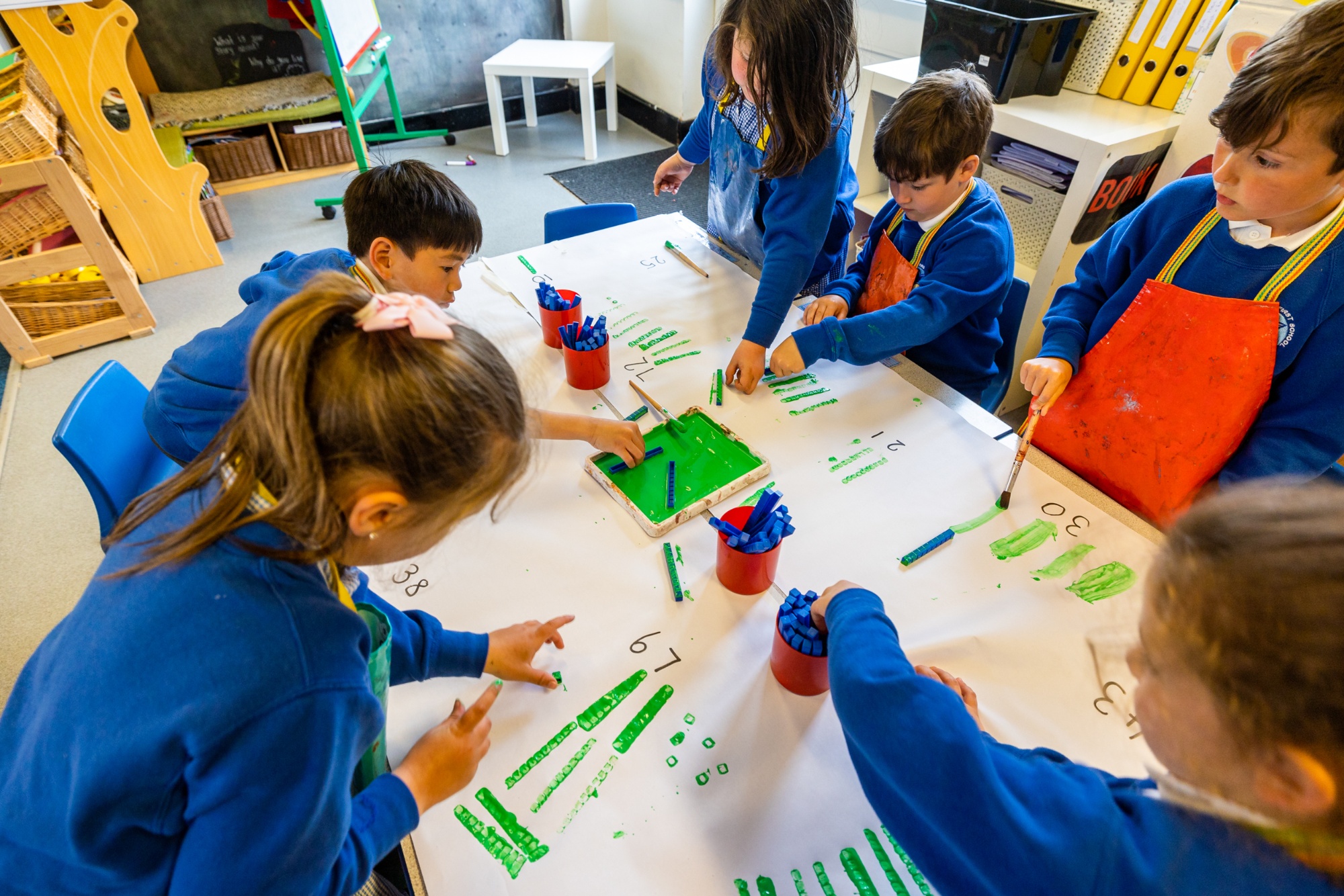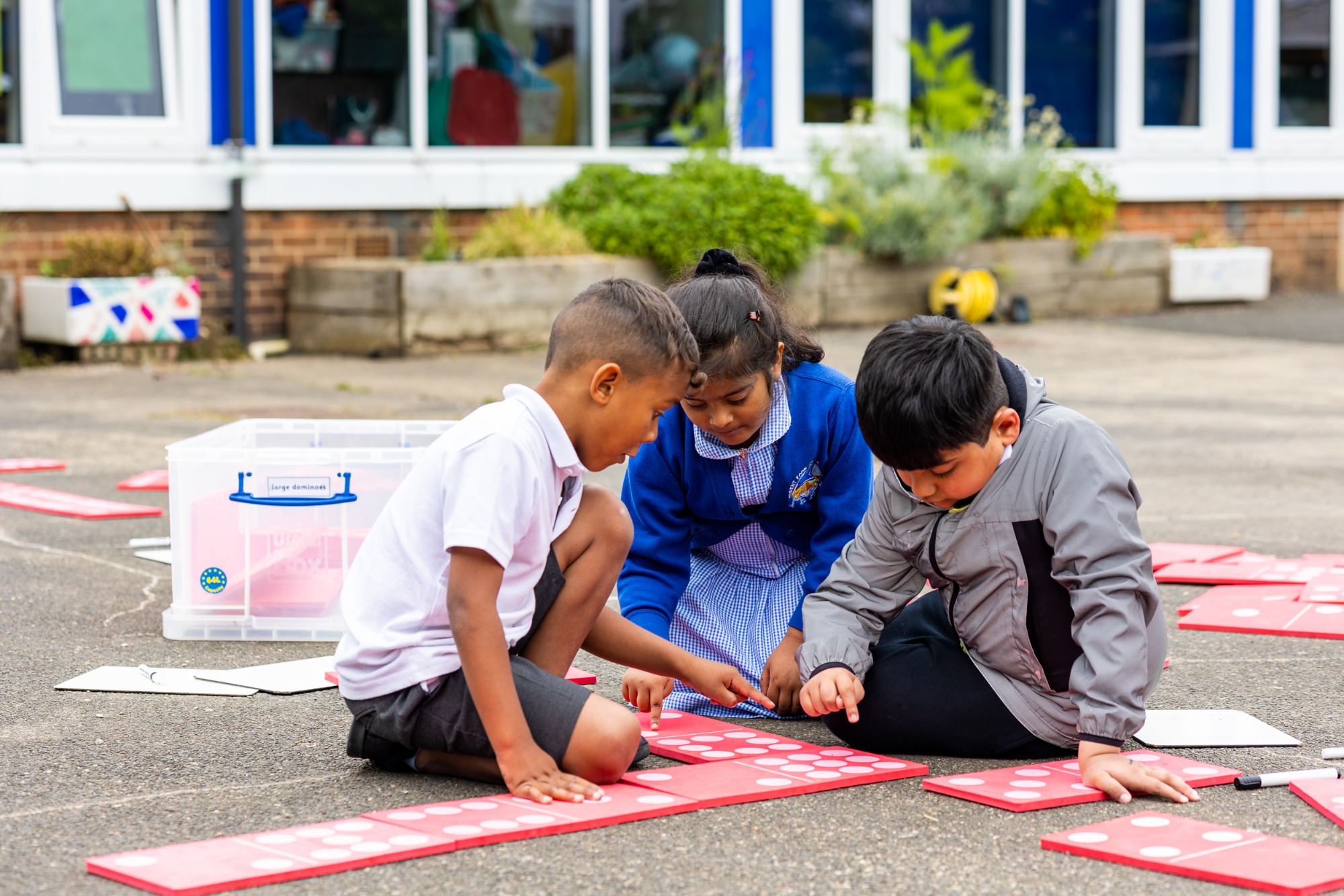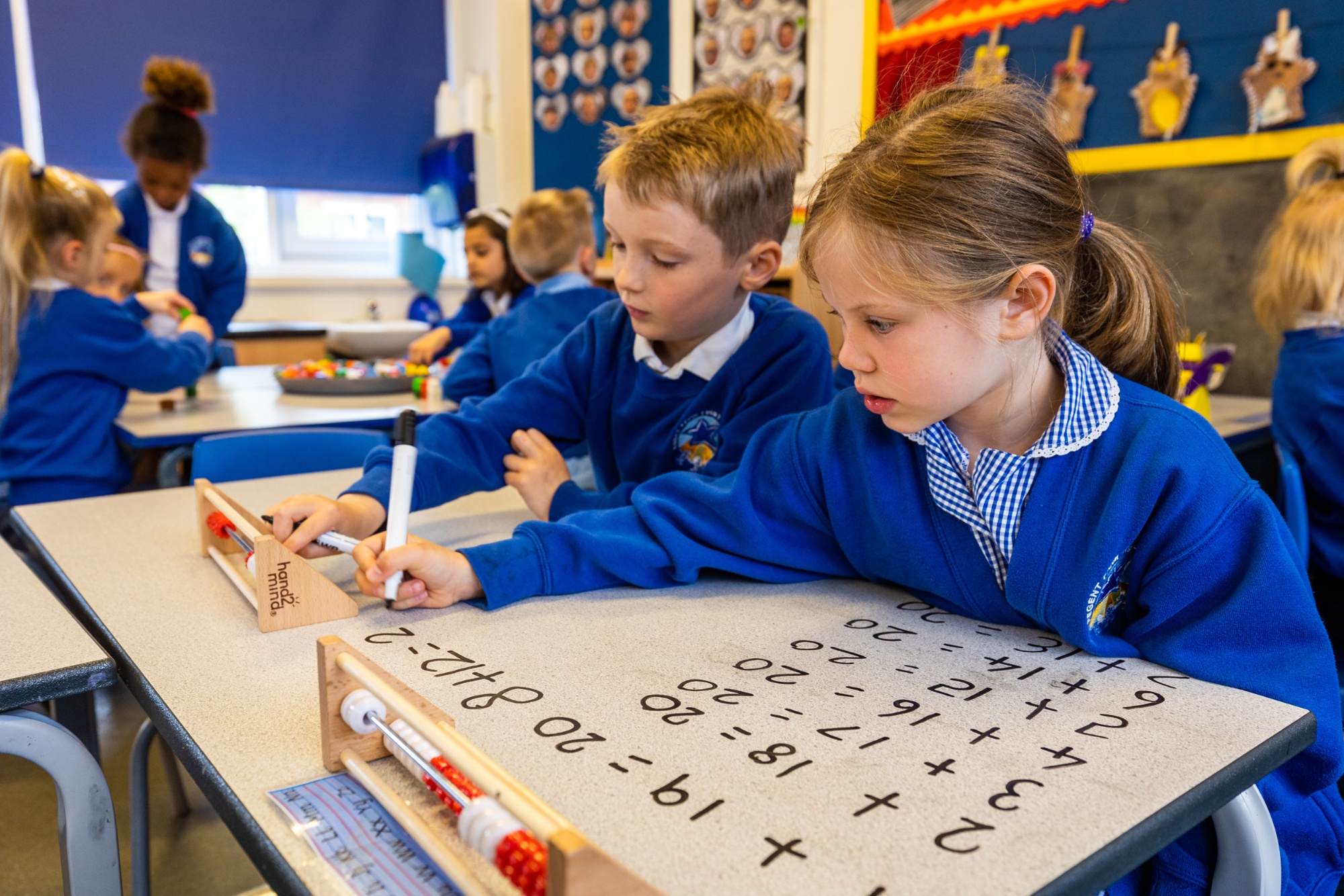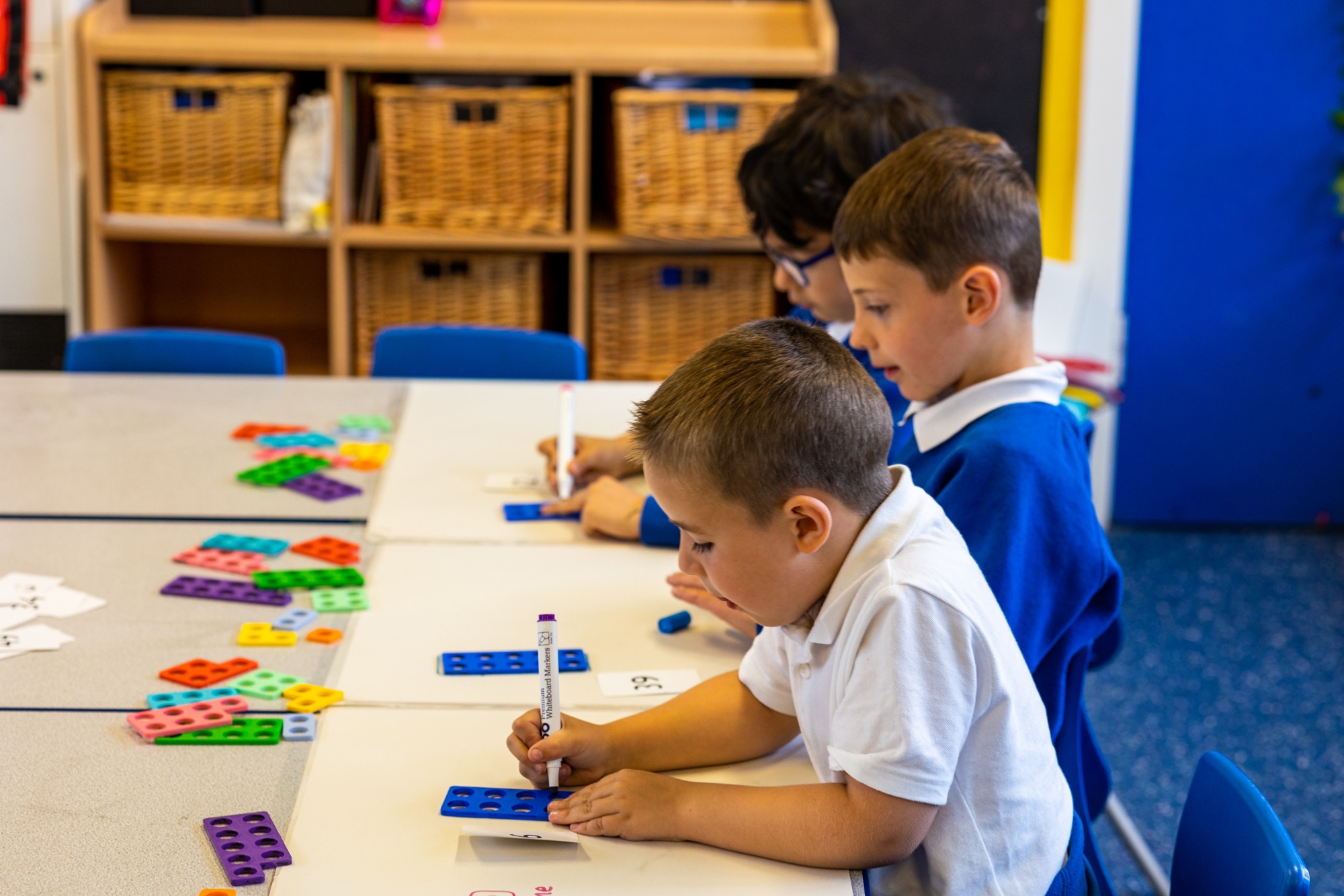Maths
A t Regent Farm First School, we strive for our children to be successful and proficient mathematicians. Maths is a life skill – we use it all the time for example when we are baking, when shopping, whilst driving and when solving problems. We use maths when we are drawing, when building, whilst waiting for the bus and when going on holiday. We even use maths when we do not realise it.
t Regent Farm First School, we strive for our children to be successful and proficient mathematicians. Maths is a life skill – we use it all the time for example when we are baking, when shopping, whilst driving and when solving problems. We use maths when we are drawing, when building, whilst waiting for the bus and when going on holiday. We even use maths when we do not realise it.
The National Curriculum for Mathematics underpins our vision for the teaching of Mathematics and therefore our main aim is to ensure that all pupils:
-
Become fluent in the fundamentals of mathematics.
-
Reason mathematically by following a line of enquiry.
- Can solve problems by applying their mathematics to a variety of problems.
We deliver these through a Mastery Curriculum. At Regent Farm this means we teach our curriculum in blocks to enable pupils to develop their knowledge and skills. This enables us to support all learners as the length of time provides those children who need it the time to understand the core concept of each area whilst offering opportunities for depth of understanding and creative thinking through finding connections for others. By following the National Curriculum we ensure each year we build on the previous year’s learning and as a staff we have taken time to think about the journey each child takes through our school and ensure they are ready for their next steps.
How do we teach maths?
The journey through the mathematics is key and underpins everything we do, to ensure this is progressive for our children we ensure the use of resources and language is consistent across our school and lessons are structured in similar ways.
 Early Years is at the start of this journey, in Early Years the focus is on developing a strong sense of number and the recognition that maths is all around us. Pattern spotting and making is an integral part of this as this underpins everything in mathematics. Maths in the Early Years, as with all subjects, takes place both indoors and outdoors through a wide range of practical and “hands on” activities. Children then have the opportunities to apply and explore these concepts through the continuous provision provided as well as through adult directed tasks.
Early Years is at the start of this journey, in Early Years the focus is on developing a strong sense of number and the recognition that maths is all around us. Pattern spotting and making is an integral part of this as this underpins everything in mathematics. Maths in the Early Years, as with all subjects, takes place both indoors and outdoors through a wide range of practical and “hands on” activities. Children then have the opportunities to apply and explore these concepts through the continuous provision provided as well as through adult directed tasks.
In Key Stage 1 and 2 our lessons are carefully planned to build on previous learning with each lesson structured into small steps with opportunities for discussion to ensure children build a deep understanding of the topic. These small steps are often marked with the children which ensures children receive immediate feedback and therefore misconceptions can be easily addressed. We aim to keep the majority of our children on the same journey with resources and questioning used to support and challenge where appropriate. We understand the conceptual journey is key for all children to deeply understand a concept and therefore we follow the concrete, pictorial, abstract approach. When introducing a new concept we allow children time to explore this through the use of concrete resources, selected specifically to highlight the key features of that concept. We then use pictorial images and stories alongside representations such as part part whole models and bar models to further support understanding before moving onto the abstract mathematics and  ensuring our children are fluent and proficient in each skill. We have two consistent approaches to challenge across the school, the Golden Box Challenge and Use Your Head which provide opportunities for children to deepen their understanding. During lessons Teachers and Teaching Assistants effectively question children to help them consolidate their understanding as well as question their thinking, encouraging them to look for connections and make generalisations. Teachers and Teaching Assistants are aware of target children within each class and aim to narrow the gap or to stretch and challenge these individuals.
ensuring our children are fluent and proficient in each skill. We have two consistent approaches to challenge across the school, the Golden Box Challenge and Use Your Head which provide opportunities for children to deepen their understanding. During lessons Teachers and Teaching Assistants effectively question children to help them consolidate their understanding as well as question their thinking, encouraging them to look for connections and make generalisations. Teachers and Teaching Assistants are aware of target children within each class and aim to narrow the gap or to stretch and challenge these individuals.
What is the impact of our maths curriculum?
We look to two key areas when judging the impact of our Mathematics curriculum, children’s views on Mathematics and progress data. We track children using the Schools Tracking System and report where each child is in relation to Age Related Expectations. We highly value children’s views and feelings towards maths as we believe happy and engaged children will make the most positive progress. We use our Vision Characters to enable children to vocalise their own feelings towards achievements in lessons and on individual tasks.

